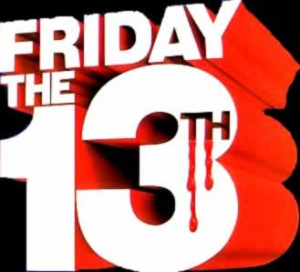
© WavebreakMediaMicro - Fotolia.com
Arecent article by Sue Shellenbarger, The Battle of the Office Candy Jar (April 12, 2011, Wall Street Journal) raises a serious question: Although office snacks might boost morale are they also sabotaging your health? The conclusion: Based on increases in sick days, apparently the answer is yes;
It has been shown that just the sight or smell of candy, cookies, donuts and other sugary sweet concoctions triggers a desire to eat some. Since most of us are lugging around excess body-fat, this kind of morale booster is not helping our diet efforts and may inadvertently contribute to increasing sick days and perhaps anxiety, listlessness or moodiness when the resulting sugar rush wears off.
People often think they can work off these snacks with a little extra exercise or activity. However, the article accurately points out that just 2 pieces of candy each workday totals about 480 calories and explains that a person weighing 160 pounds would need to walk 157 minutes; ballroom dance 132; golf (carrying clubs) 88 minutes; backpack 56 minutes; or run fast for 29 minutes just to burn off those extra calories. Warning: You don’t even want to know the amount of exercise it would take to burn off most donuts and cookies! In addition, these sugary treats wreak havoc with our bodies, spiking insulin levels and making fat burning impossible.
“We’ve all been conditioned to view sugary foods as ‘treats’ when maybe we need to view them as drugs,” say co-authors Dian Griesel, Ph.D. and Tom Griesel of TurboCharged: Accelerate Your Fat Burning Metabolism, Get Lean Fast and Leave Diet and Exercise Rules in the Dust (BSH, 2011).* this is not an affiliate link [continue reading…]
 Have you watched the movie Friday the 13th? Scary, isn’t it? Well, perhaps not quite as scary as the infamous Rebecca Black song, “Friday” – but close enough. If you are one of those who carries around a rabbit’s foot and strokes it all day long for good luck or makes a wish after blowing away a fallen eyelash – then you are probably in the midst of bolting your doors, turning on all the lights and hiding under the comforting warmth of your comforter. Tomorrow just so happens to be Friday the 13th and if you have friggatriskaidekaphobia – it’s simply not a day to be trifled with.
Have you watched the movie Friday the 13th? Scary, isn’t it? Well, perhaps not quite as scary as the infamous Rebecca Black song, “Friday” – but close enough. If you are one of those who carries around a rabbit’s foot and strokes it all day long for good luck or makes a wish after blowing away a fallen eyelash – then you are probably in the midst of bolting your doors, turning on all the lights and hiding under the comforting warmth of your comforter. Tomorrow just so happens to be Friday the 13th and if you have friggatriskaidekaphobia – it’s simply not a day to be trifled with.
Frigga what you say? And yes, attempting to say it can just as well be as terrifying as its definition. The Friggatriskaidekaphobia phenomenon is a fear of Friday the 13th – a commonly held superstition that has been around for centuries, whichever part of the world you may be in. In Bollywood for example (the Mumbai based Indian film industry), producers hesitate to release movies on Friday the 13th because they fear it is bad luck and their movies might fail to do well at the box office. The stock market slows down on Friday the 13th and people also postpone travel and do not conduct major financial deals and transactions.
But what causes someone to fear a day and a date? [continue reading…]

istockphoto
The internet has changed people’s relationships with information. Data consistently shows that doctors, nurses, and other health professionals continue to be the first choice for most people with health concerns, but online resources, including advice from peers, are a significant source of health information in the U.S.
As broadband and mobile access spreads, more people have the ability – and increasingly, the habit – of sharing what they are doing or thinking. In health care this translates to people tracking their workout routines, posting reviews of their medical treatments, and raising awareness about certain health conditions.
“I know, and I want to share my knowledge” is the leading edge of health care.
These are not yet mainstream activities, but there are pockets of highly-engaged patients and caregivers who are taking an active role in tracking and sharing what they have learned.
These are not yet mainstream activities, but there are pockets of highly-engaged patients and caregivers who are taking an active role in tracking and sharing what they have learned.
- Social network sites are popular, but used only sparingly for health updates and queries.
- One in four adult internet users track their own health data online.
- More people report being helped, rather than harmed, by online health information.
- People caring for loved ones are more likely than other adults to use social network sites to gather and share health information and support.
- Relatively few use hospital ranking and doctor review sites.
- One in four adult internet users have consulted online reviews of drugs or treatments.
These are some of the findings from the Pew Internet & American Life Research Project Read the full report
 Infants suffer disrupted sleep patterns that can affect their development as a consequence of family feuds, a new study by an international group of researchers has found.
Infants suffer disrupted sleep patterns that can affect their development as a consequence of family feuds, a new study by an international group of researchers has found.
The researchers sought to assess the relationship between marital instability—for example, parents who were contemplating divorce—and children’s sleep problems—namely, difficulties getting to sleep or staying asleep. Their inquiry was based, in part, on the possibility that changes in the brain systems involved in how children develop and regulate their sleep patterns reflect the impact of family stress on children.
The study also determined whether it was unsettled sleep patterns in infants that affected their parents/carers or whether the quality of parents’ relationships affected the child’s sleep patterns.
What they found surprised the team- instability in a parents’ relationship when the infant was nine months old still affected the child when s/he was 18 months old.
[continue reading…]




